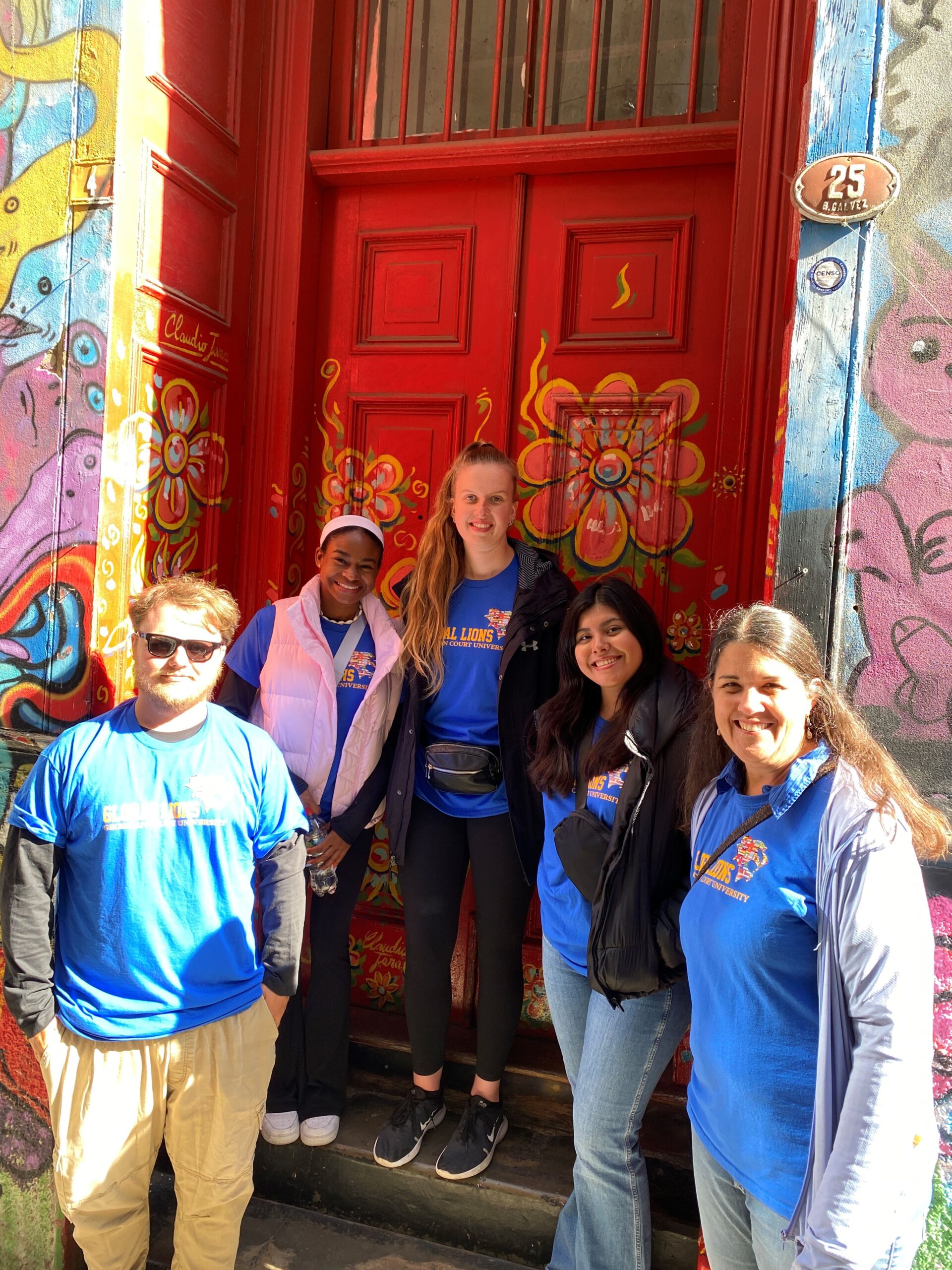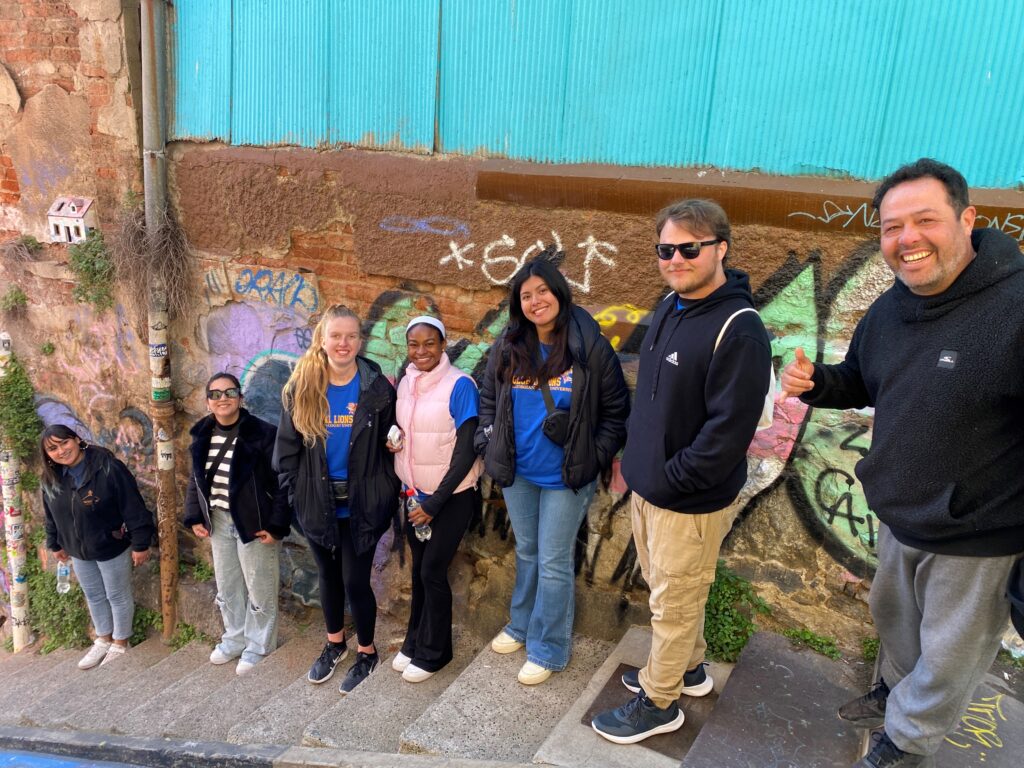

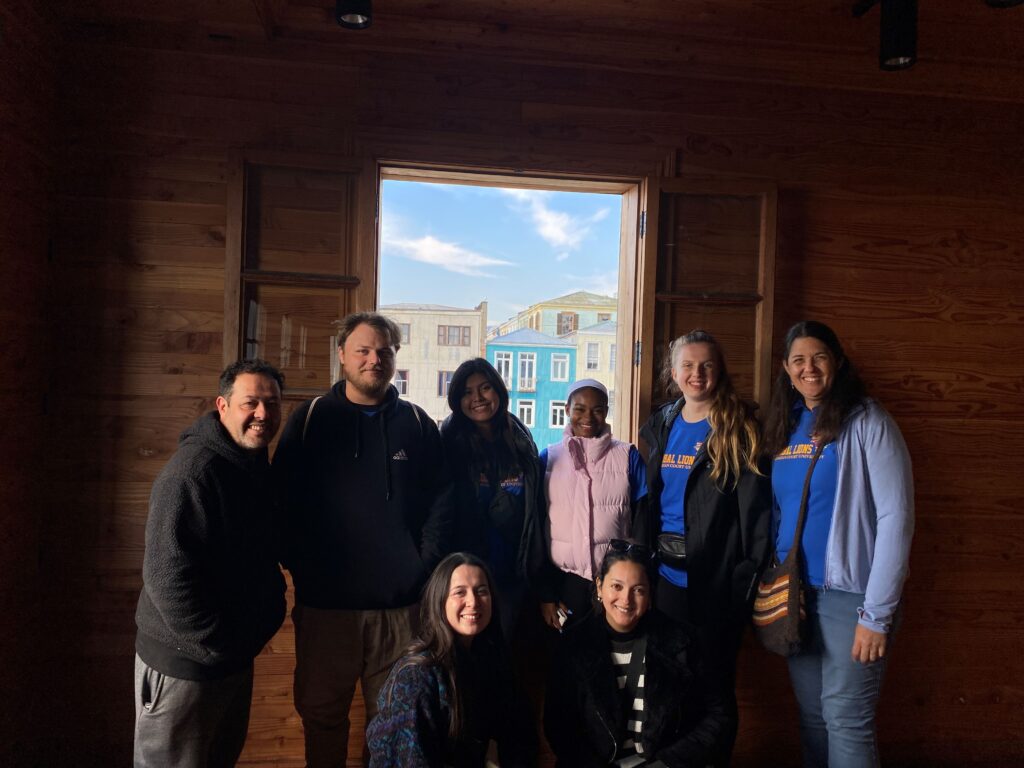
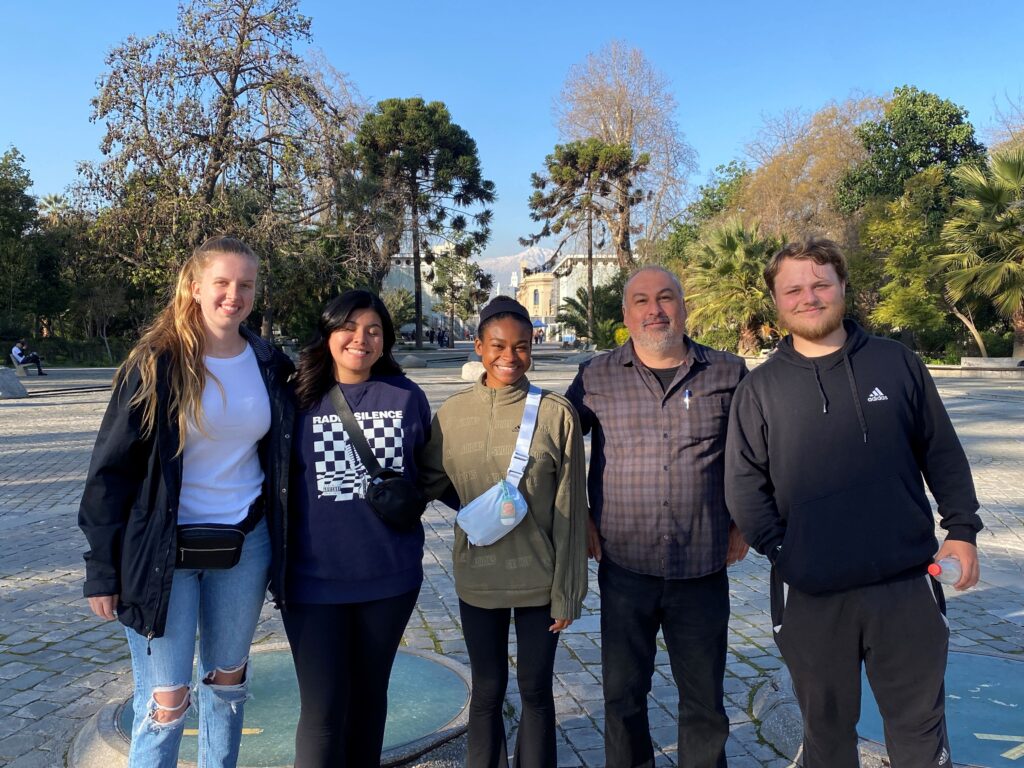
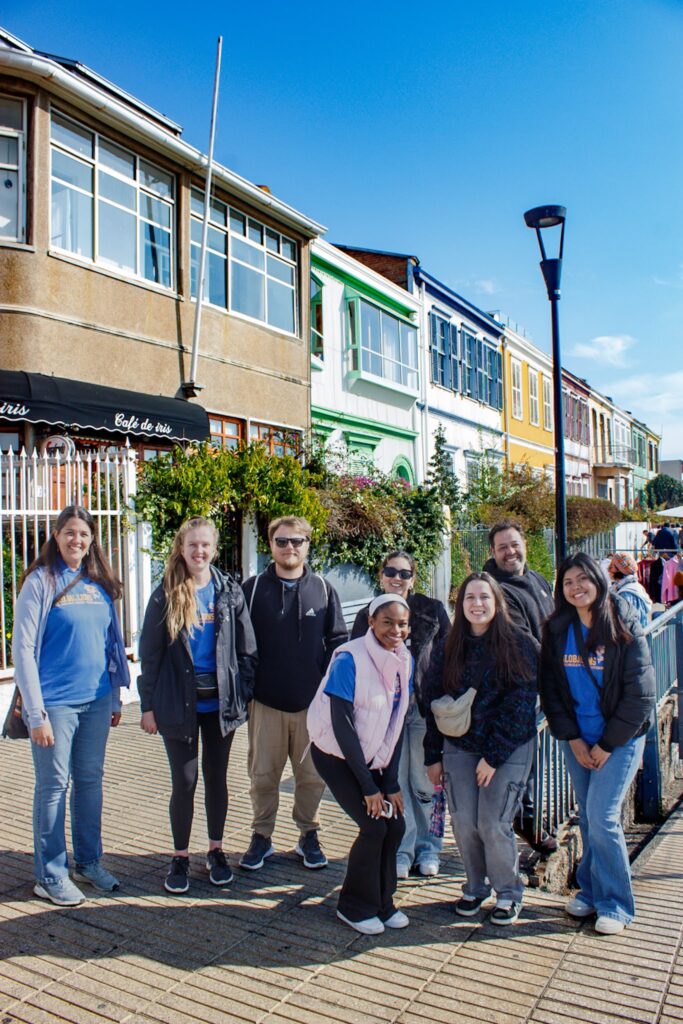
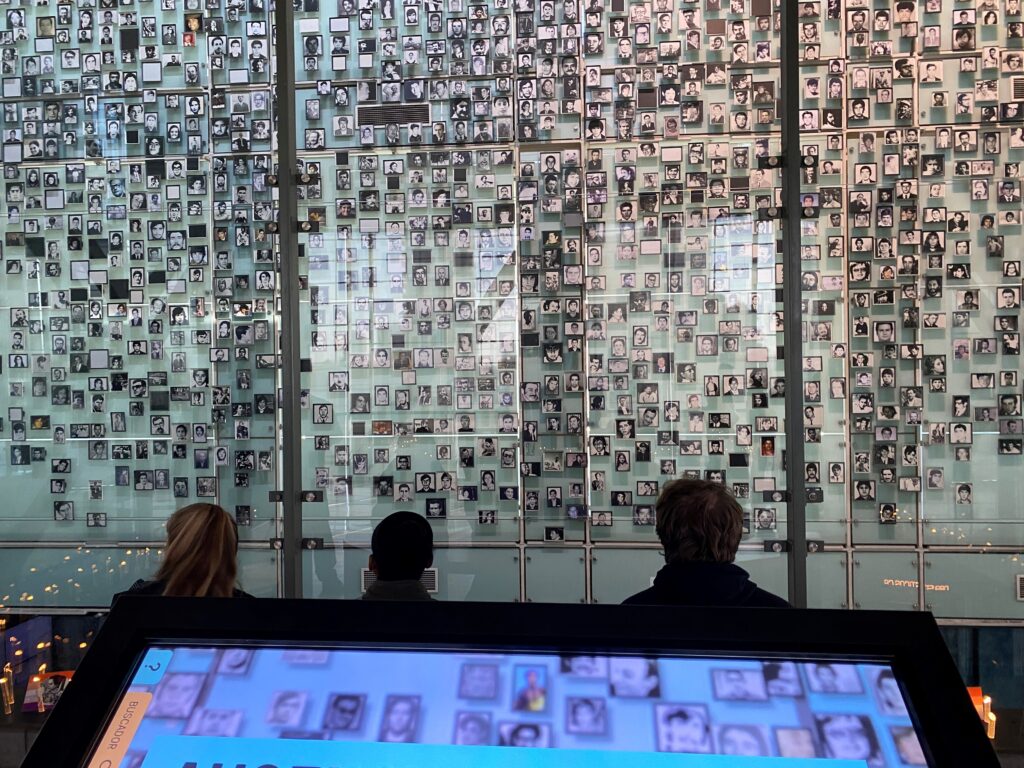
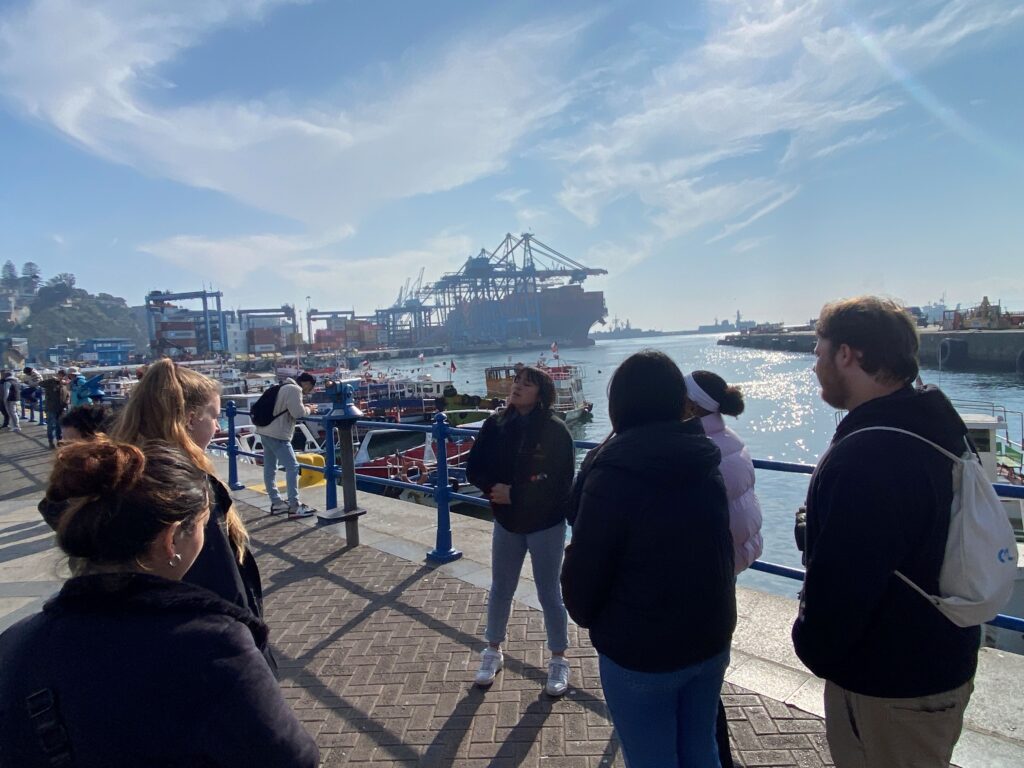
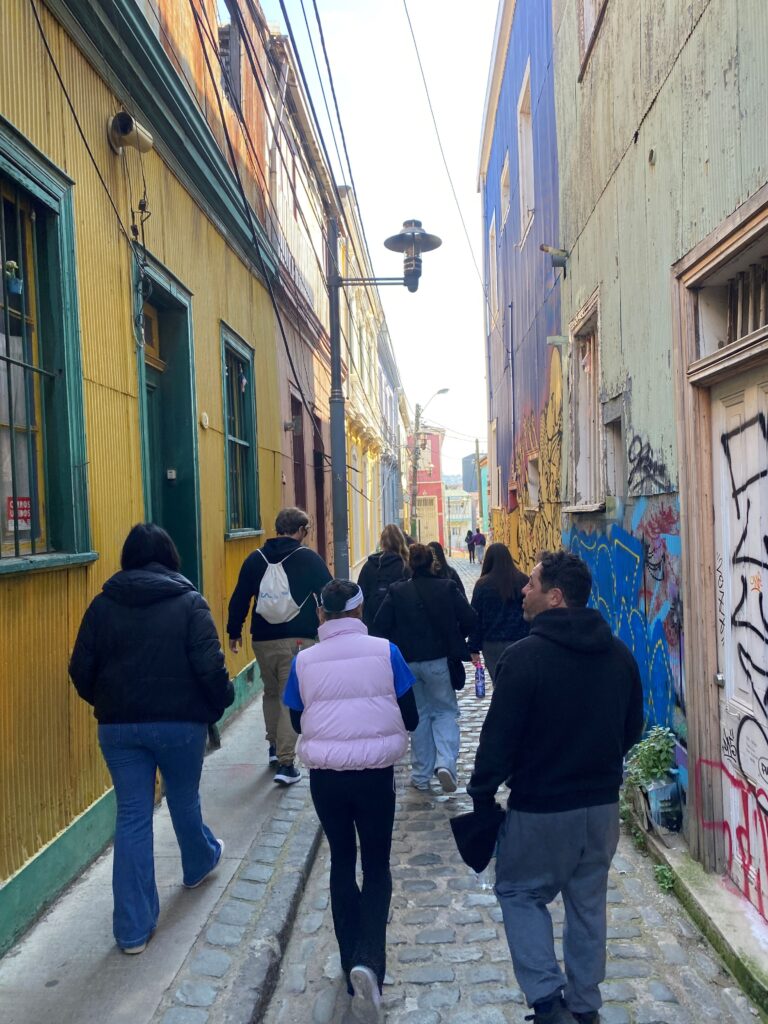
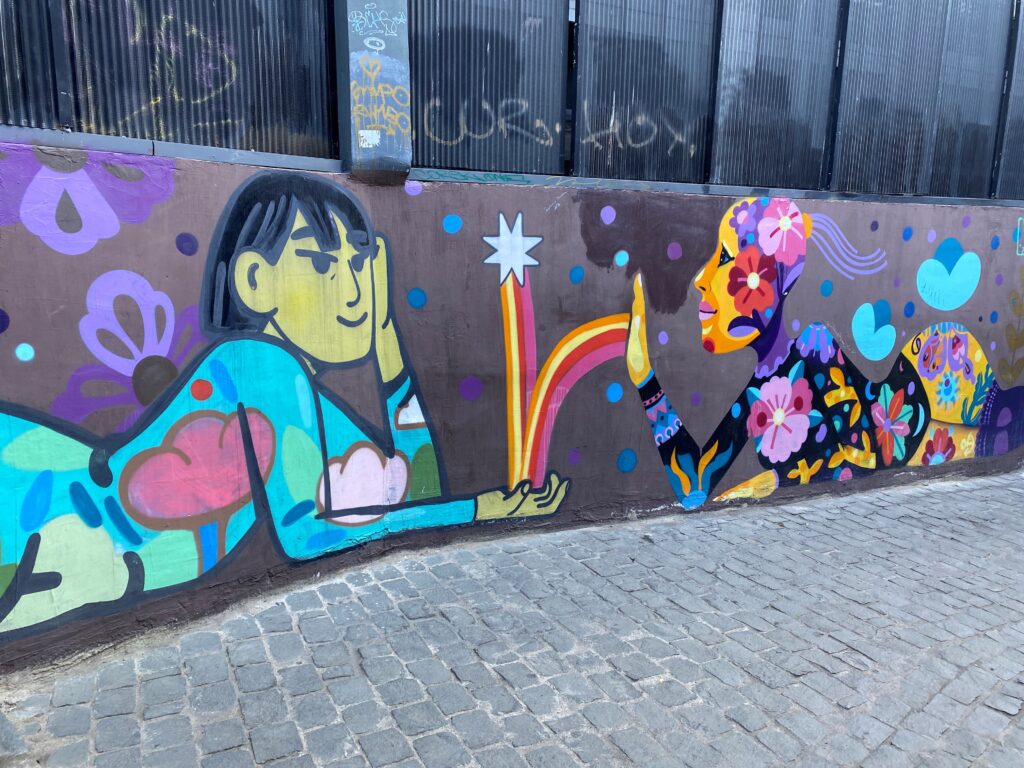
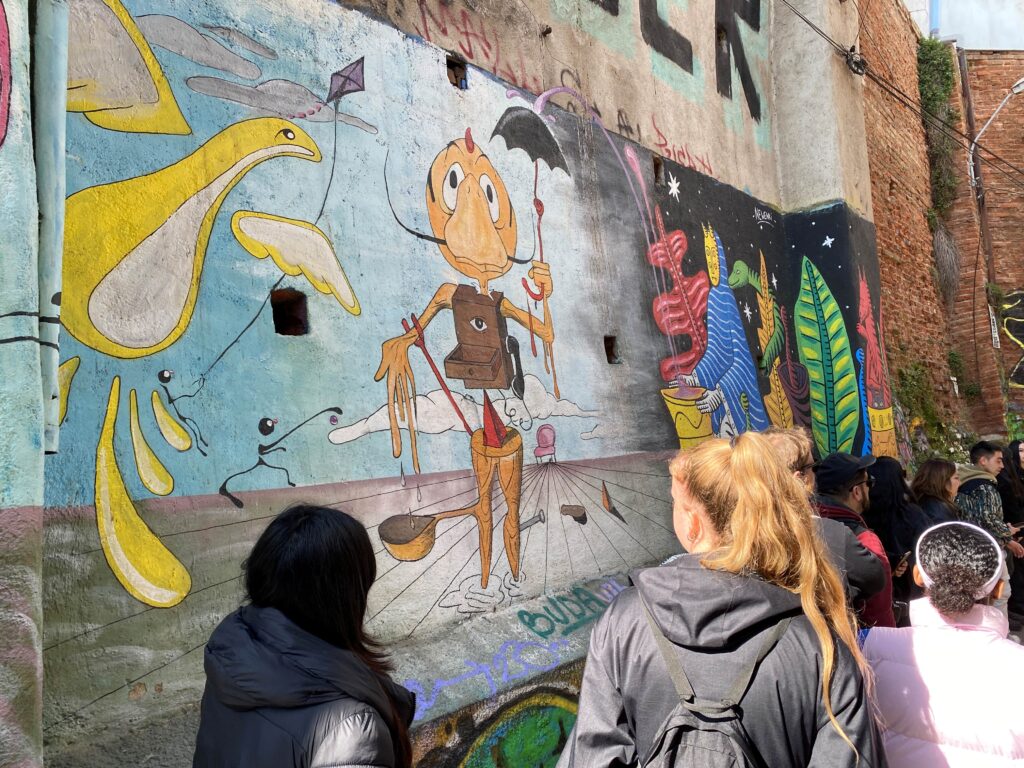
Reflections by Emma Gildea:
Reflecting on my exchange experience in Chile, the journey proved to be both educational and life changing. One of the most impactful moments was our visit to the Human Rights Museum in Santiago. This visit gave us a great understanding into Chile’s turbulent past, particularly the human rights abuses during the Pinochet regime. I was moved by the suffering and resilience as I was walking through the museum, which deepened my understanding of the historical and social context of the country. As a Spanish major, I have studied this topic previously in class, however, it wasn’t until that moment that I truly understood the hardship that Chile faced during the dictatorship. The museum not only educated us about the past but also highlighted the ongoing struggle for justice and human rights.
Moving on, staying with a host family in Viña del Mar offered a unique perspective on Chilean life and culture. My host family was incredibly welcoming, providing a warm and supportive environment. I developed a greater respect for Chilean culture, traditions, and the genuine hospitality of its people from daily interactions and shared experiences. I have made valuable connections and forged lifelong friendships. These relationships have enriched my life, providing both support and a broader perspective on the world, immersing me into the local culture in a meaningful way, far beyond what typical tourism experiences could offer.
Our tours of Valparaíso and Concón enriched my experience by exposing me to Chile’s diverse landscapes and urban vibrancy. Valparaíso, with its colorful murals and hilly streets, showcased a unique blend of artistic expression and historical charm. In contrast, Concón offered stunning coastal views and an opportunity to witness the natural beauty of Chile. Both places highlighted the country’s geographic and cultural diversity, making me appreciate Chile’s unique identity.
Engaging in workshops with children from Quintero, a region known as a “sacrifice zone” due to environmental degradation, was particularly moving. These workshops allowed me to connect with young minds who face significant challenges due to the region’s pollution and economic hardships. Despite the adversity they face, the children exhibited remarkable resilience and hope. I will never forget the impression these kids had on me, and I look forward to returning one day and seeing the same smiling faces eager to learn. Working with them was both humbling and inspiring, showing the importance of environmental and social justice.
Overall, this exchange in Chile has been a deeply enriching experience. From learning about historical injustices to immersing myself in local culture and engaging with communities facing environmental challenges, each aspect of the trip contributed to a greater understanding of Chile and its people. The blend of historical, cultural, and social experiences has left a lasting impression on me, shaping my perspectives and broadening my worldview.
Reflections by Kayre Gonzalez:
The time spent in Chile was amazing from learning about some the of the history of the politics of Chile, taking tours of different areas to even learning about some environmental issues primarily focused on pollution. The experience has left me wanting to revisit the country. A few of the most memorable parts were visiting the museum of Chile’s 9/11 where we were able to get a better understanding of the politics that was going on during that time. Many of the tours that we also took opened our eyes to many street artists that were from
the area and seeing how beautiful they displayed they vision of Chile.
Furthermore, the camp with the kids shifted my perspective on environmental issues
profoundly. Engaging with local children in Quintero, who are directly affected by the pollution in their communities, offered a stark contrast to the more abstract discussions I am used to in the United States. Being able to see their firsthand experiences such as shifting weather patterns which ultimately almost affected our agenda on the final day of the camp. From this it grounded the issue in a way that statistics and reports never could. Seeing how much
knowledge these children carried was far beyond what I could describe. Interacting with the children, who were actively involved in the projects like cleaning a nearby beach, making instruments and water filters from recycled materials to learning about air pollution played a significant role in furthering the children’s knowledge. Lastly this camp was not only a means to help the kids learn but it was also a time for us, the university students who put the time and effort in the camp to also learn. Upon returning to the United States, my viewpoint has shifted from one of abstract concern to a more engaged and actionable stance. This experience has been something that I consider to be unique and really allowed me to take more opportunities like these.

